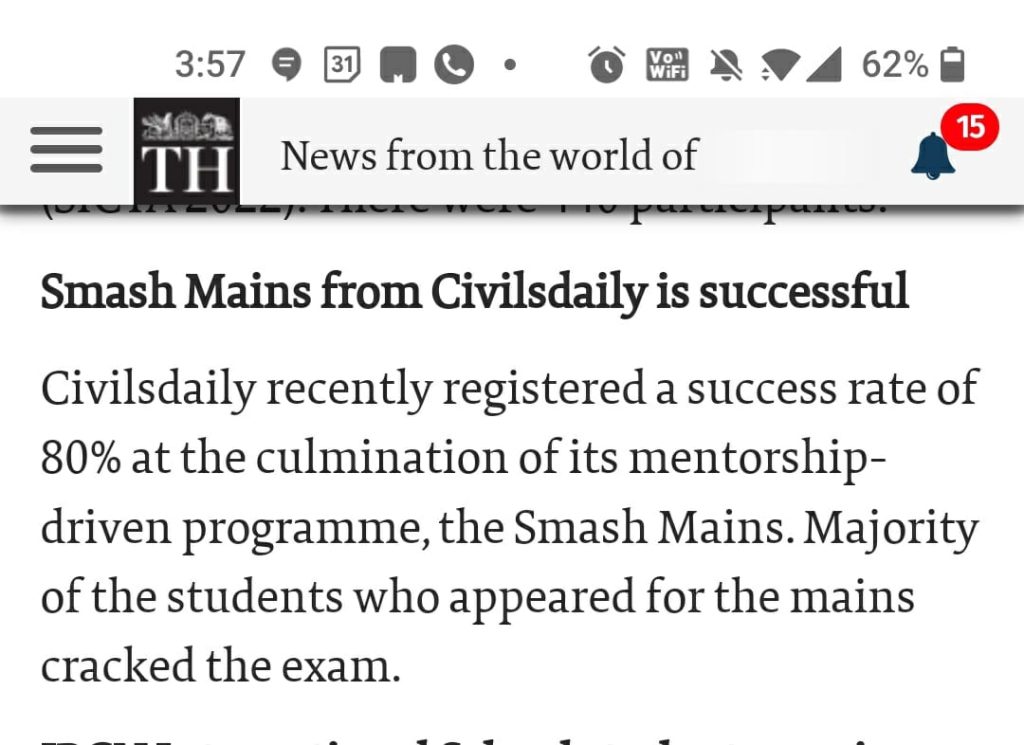Webinar: 20 Best Practices of Answer Writing to Score like Topper in UPSC Mains | 1-1 LIVE session by Pravin Garje sir | Register and receive CD’s mains Notes and PDF post webinar session
Broadly speaking, two types of skills are required for creating excellent, rule-of-thumb answers in UPSC mains- execution of facts and integration of an administrator-like opinion.
And it’s true that almost 100 out of 100 toppers develop these 2 must-have skills. And these must-have skills completely depend on the 20 best practices of UPSC mains answer writing.
Besides, an aspirant should understand the bare minimum requirements needed for effective answer writing. Because these 1750 marks of the Mains exam will decide your IAS destiny.
Though UPSC has given a very detailed and crisp syllabus, it can’t resist the urge of adding surprising elements in questions every year to keep candidates on their toes and to test their mettle.
To boost your Mains score by more than 100 marks. And that is enough to make the difference where a single mark can decide success and failure.
Acknowledging the need to ensure the removal of difficulties, the students face, we’re conducting an on-demand MASTERCLASS by Pravin Sir on What are the 20 Best Practices of Answer Writing to Score like Topper in Mains & How to boost your mains Score in 2023, sticking to the basic sources, and practicing answer writing in expert-prescribed ways, even after many things are pending.
This is the right time to focus on the principles that Pravin sir discussed in the FREE MASTERCLASS. (details below)
20 Best Practices of Answer Writing in UPSC Mains Masterclass details: 28th November (Wednesday), 6 PM
The main points to be discussed:
“*The 20 best answer writing practices are divided into 3 sections:- 5 basics, 5 intermediate, and 10 advanced”
1. Identifying and tackling directive words and tail words in the Mains Question. There are more than 30 directives and you must answer according to that only. We will discuss how to approach an answer wrt to these directives
2. When, where, and how to use diagrams, flowcharts, tables, etc?
It is a common notion that more diagrams = more marks, but this is not true. You must draw diagrams/flowcharts to address certain parts of the question only.
3. Understanding the core and non-core parts of the questions.
There is one part of the Mains question that is directly asked and is an obvious question. The non-core part at times might not be obvious but you must address that.
4. How to use anecdotes, facts, data, examples, and case studies? – even using the most common ones in the most impactful manner, in such a manner that it fetches you more marks
5. How to answer a question with limited content or knowledge? Basically – Bouncer/googly questions. Keywords in question: Pravin sir will thoroughly explain what each keyword means. Analyzing critically is different from explaining or elaborating. So, how to read the question carefully and then start answering?
6. How to complete the paper in 3hours? And what should be the correct sequence of answering sections in the Mains paper?
This is very essential to maintain your speed as well as consistency in your thinking process.
7. Make a trade-off between quality and quantity in your answers. You might now be able to recall every piece of info for all the answers.
8. When to write answers in Paragraph form and when to write in heading, subheading, and points? What should be the ideal length of a sentence, paragraph, and number of points?
9. What should be your strategy for the last week before Mains 2022?
10. How to go about the Final Revision before Mains 2022? Focus on making more revisions: If you can’t remember any points, how to put things in your notes during the exam? What are the exact ways to revise at least 10 times before the exam? Things must be your tips.
Pravin Sir: Pravin sir is a mentor with CivilsDaily for nearly 4+ years and is now Working as a Mentor Head in Civilsdaily Mains Guidance Program. He has done 6 attempts of UPSC CSE with, written multiple mains and two UPSC interviews, PSIR as an optional, CAPF Interview 2017.
What The Hindu opined about Civilsdaily Mentorship





